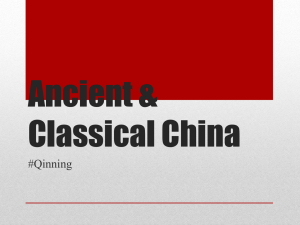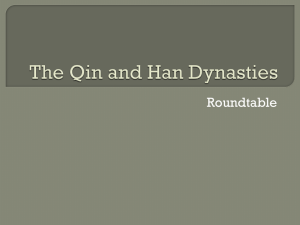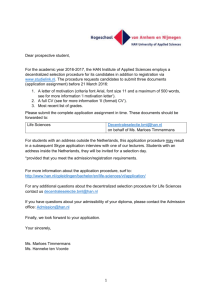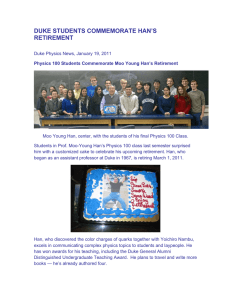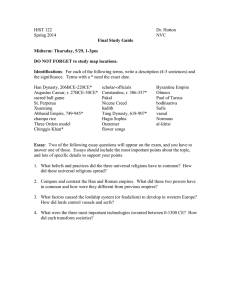Last Name First Name Last Name Molly Tenenbaum
advertisement
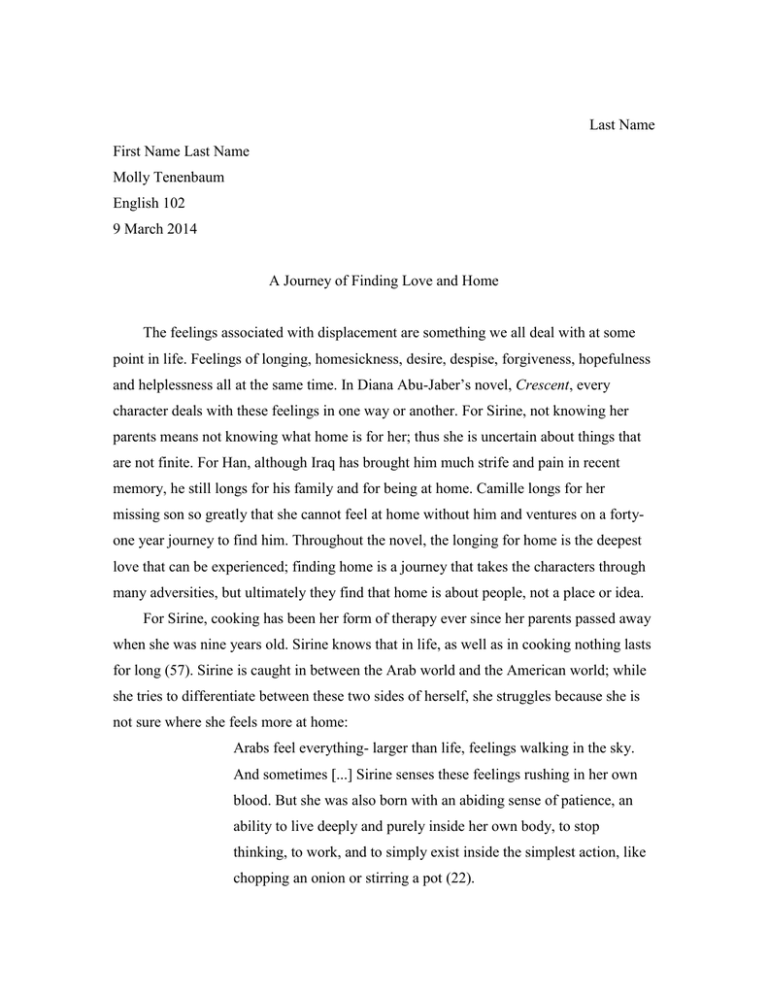
Last Name First Name Last Name Molly Tenenbaum English 102 9 March 2014 A Journey of Finding Love and Home The feelings associated with displacement are something we all deal with at some point in life. Feelings of longing, homesickness, desire, despise, forgiveness, hopefulness and helplessness all at the same time. In Diana Abu-Jaber’s novel, Crescent, every character deals with these feelings in one way or another. For Sirine, not knowing her parents means not knowing what home is for her; thus she is uncertain about things that are not finite. For Han, although Iraq has brought him much strife and pain in recent memory, he still longs for his family and for being at home. Camille longs for her missing son so greatly that she cannot feel at home without him and ventures on a fortyone year journey to find him. Throughout the novel, the longing for home is the deepest love that can be experienced; finding home is a journey that takes the characters through many adversities, but ultimately they find that home is about people, not a place or idea. For Sirine, cooking has been her form of therapy ever since her parents passed away when she was nine years old. Sirine knows that in life, as well as in cooking nothing lasts for long (57). Sirine is caught in between the Arab world and the American world; while she tries to differentiate between these two sides of herself, she struggles because she is not sure where she feels more at home: Arabs feel everything- larger than life, feelings walking in the sky. And sometimes [...] Sirine senses these feelings rushing in her own blood. But she was also born with an abiding sense of patience, an ability to live deeply and purely inside her own body, to stop thinking, to work, and to simply exist inside the simplest action, like chopping an onion or stirring a pot (22). Sirine throws herself into her work, because cooking is the only thing she is certain of in her life. She equates every feeling and sensation to the way a meal is prepared, the way a vegetable feels in her hand, or the way spices smell in the air: “she feels steady and capable- in her element” (360). Cooking is a little bit of what she remembers of her parents that she is able to hold on to and use every day to make her feel like she is home. While Sirine searches for this lost part of herself, it is evident that she doesn’t have a shortage of admirers in her life; yet “she has never really, entirely given herself to any of them” (40). Because she is not home and hasn’t come to terms with this loss, she cannot “lose herself in someone else” (40); and therefore she feels there may be some sort of flaw within herself. Although Sirine seems to have closed herself off from the vulnerability of any possible further loss, she is hardworking and mysterious- perhaps traits that can only be understood and fully appreciated by another homesick Arab. Just as Pema Chodron’s famous quote states that “nothing ever goes away until it has taught us what we need to know,” Han is a man struggling to get away from his past, but finds himself consistently bound and consumed by it. He admits that “you have to go away three times before you can really get away from anything [and he has] only left Iraq twice so far” (211). He is drawn back to Iraq even though at the time it is dangerous, tumultuous, and has brought him and his family much pain. “Anything you can’t have you want twice as much” (53), and Han wanting to go back home to Iraq is no different. Perhaps Han recognizes something unique in Sirine: the ability “to show him how to live in this country and how to let go of the other” (53). Han is pensive and intelligent, and longs for the way things were in Iraq. He is consumed with the same loneliness that all immigrants feel. Perhaps, because Sirine doesn’t speak Arabic, and has never been to Iraq, Han feels that he can introduce her to a side of herself and her heritage that she has never really known. For Han, Sirine holds the same mysteriousness that his first love, Janet did; consequently reminding him of home even more. Although Sirine and Han’s love seems strong, his love and desire for Iraq is stronger. He feels the need to return, to see his mother and try to make things easier for her in her final days. This overwhelming sadness for home turns into a consuming love. A brokenness in each other brings Sirine and Han together, but ultimately, abruptly tears them apart. Han sees the world as broken, because Iraq is broken. He is searching for way to break from his life in America to return to Iraq, to return his longing heart to its home. When he finally feels “freed to go back to Iraq” (379), he does. Meanwhile, Sirine sees herself as broken or flawed and is looking to repair herself. She sees things unclearly while she is with Han in regards to their relationship and her emotions, and only sees things clearly after time apart from him. Sirine and Han seek the comforts of home in each other; and together they find a “peculiar and delicious loneliness” (147) in one another that is new and different from their usual longings. Their souls mirroring each other offer a look into their respective pasts where Sirine remembers the lost, forgotten memories of her parents and Han remembers his deep feelings of guilt towards the way he left things in Iraq; and “like an old loss- something that should no longer mean anything but somehow still does” (350), these memories consume them. The story of Camille and her son Abdelrahman runs parallel to that of Han and Sirine. Camille’s unending love for her son leads her on an expansive forty-one year journey to find him and return him to his home. She cannot rest until he is back safely. The love she has for him consumes her life, and she “will wait forever and a day for what [she] wants” (146). Although she has nineteen other sons, and Abdelrahman is very disobedient, “for some reason [she] loves the worst one best of all” (205). His return is necessary to her contentedness. “The conjurings of loneliness” (212) cause Camille to search far and wide for her son as she encounters many strange and mythical creatures, and even evades death. On her journey, Camille and her dog spend years going in circles across the desert; here she realized that “somehow the paths never quite led where they expected them to lead [...] After months of fruitless wandering, it seemed that they’d never find their way back home” (260). Camille is lost and homesick for her son; just as Sirine is lost within herself and Han is homesick for Iraq. Throughout the story of Camille’s search for her son, we find that the longing and homesickness of an Arab is a powerful force that is essentially unending and unrelenting. Perhaps the homesickness and loneliness of the Arab as a people is a unique trait because they are constantly fighting for their homeland. “Most Arabs would settle for a little bit of peace, less fighting in the backyard, [or even just] getting to keep the backyard” (171). This sense of grief, constant uncertainty, and tumult within help to explain the relationships between the characters of Crescent. As the reader, one can only hope that by the end of the novel Han has finally discovered that the familiarity of home can be found in Sirine, and he can rest his head and calm his longing heart. Ultimately, a sense of belonging is all most people want out of life: knowing where one came from in order to navigate where they are going is essential to feeling whole. The tragic, mysterious, exasperating, lonely life of an Arab (54) leads to an unyielding journey to find this inalienable right, this sense of finally arriving home. Works Cited Abu-Jaber, Diana. Crescent. New York: W.W. Norton and Company. 2003. Print. Chodron, Pema. When Things Fall Apart: Heart Advice for Difficult Times. Boston: Shambhala. 2000. Web.
